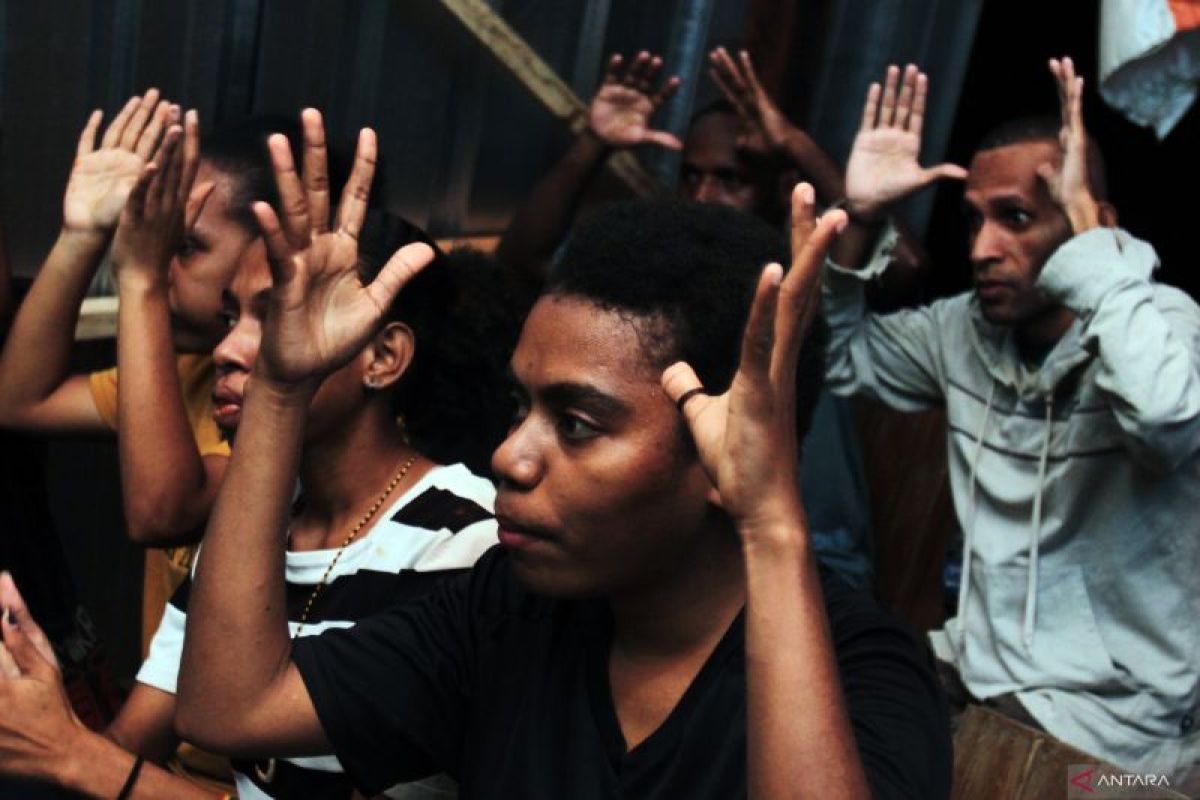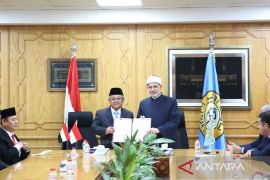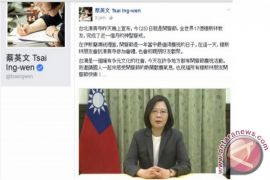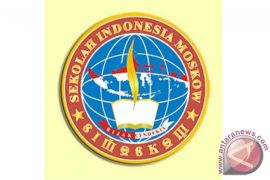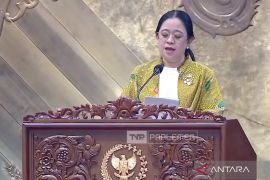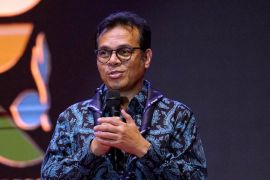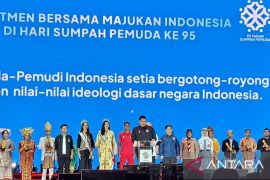Based on historical records, on October 27-28, 1928, in Batavia, Jakarta, youth from various organizations held a congress to strengthen the spirit of unity and nationalism and declared the promise of one blood, one nation, and one language, namely Indonesian, which is called the Youth Pledge.
The agreement of all youth organizations, namely Jong Java, Jong Soematra, Pemoeda Indonesia, Sekar Roekoen, Jong Islamieten, Jong Bataksbond, Jong Celebes, Pemoeda Kaoem Betawi, and Perhimpoenan Peladjar-Peladjar Indonesia (PPPI) became an important momentum as a foundation for the unity of all components of the nation in realizing the Indonesian state.
In the closing of the Congress, the song Indonesia Raya was first sung by Wage Rudolf Supratman through the strains of a violin that shook all the congress participants.
Since the Youth Pledge, Indonesian has continued to develop as a unifying language until today.
As a country with mega-cultural diversity, the Indonesian language also has a strategic role in strengthening the preservation of national culture.
The history of the Indonesian language began with the Malay language family which has long been a lingua franca or connecting language in the archipelago.
One of the figures who played a major role in the development of the Malay language was Raja Ali Haji, a Malay poet who is famous for his work Gurindam Dua Belas.
He was born in 1808 in the center of the Riau-Lingga Sultanate on Penyengat Island, Riau Islands. This monumental work is characterized by Islamic and Malay literature.
Currently, Malay literature continues to develop and is popular through the art of pantun. Pantun art is popularly used in various formal and informal events in Indonesia.
In fact, one of the national airlines presents pantun as a welcome greeting for its passengers. This pantun phenomenon is quite encouraging as a form of advancing and preserving pantun as a national culture. The pantun tradition was designated as an Intangible Cultural Heritage (WBTB) by UNESCO on December 17, 2020. Indonesia submitted a pantun nomination to UNESCO along with its neighboring country, Malaysia.
On the other side, the Indonesian government continues to strive to strengthen Bahasa Indonesia not only as a unifying language for the nation but also as a language of world peace.
Related news: Young people stand as pillars of the nation: Deputy Minister Hidayat
In 2023, the Government of the Republic of Indonesia proposed Bahasa Indonesia as an official language at the 42nd UNESCO General Assembly at the UNESCO Headquarters in Paris, France. Bahasa Indonesia officially became the 10th language recognized as an official language of UNESCO with the establishment of Resolution 42 C/28 by consensus at the general assembly.
Bahasa Indonesia is recognized as the official language of UNESCO, in addition to English, French, Arabic, Mandarin, Russian, Spanish, Hindi, Italian, and Portuguese.
The government's efforts are one form of implementation of Law Number 24 of 2009 concerning the Flag, Language, and National Emblem, as well as the National Anthem.
The mandate of the Law is that the government must improve the function of the Indonesian language to become an international language gradually, systematically, and sustainably.
On the other hand, these efforts are de jure steps so that the Indonesian language gets official language status in international institutions.
Currently, the Indonesian language is facing a difficult challenge related to the extraordinary cultural expansion of other countries.
Various nations, such as England, the United States, Japan, the United States, South Korea, China, and European countries, are aggressively pushing cultural expansion through various creative strategies.
This cultural expansion is also accompanied by efforts to popularize the language of each country. South Korea is one example of the success story of an integrated cultural expansion called the Hallyu Korean Wave.
The ginseng country has succeeded in creating a global phenomenon in the form of consumption of Korean products integrated with entertainment services such as K-Pop, K-Drama, and Games.
This effort has created another phenomenon in the form of strengthening the Korean language in the international world, including Indonesia. Currently, the young generation -- Gen Z and Gen Alpha) -- in Indonesia have started to gain fluency in Korean to refer to Korean music, films, cuisine, and traditions in everyday life. This is a lesson learned and a warning for Indonesia.
The government needs to continue to strengthen Indonesian as a national and international language through an integrated cultural strategy that involves all stakeholders, including the diaspora abroad.
The cultural strategy must be in line with the mandate of Law Number 5 of 2017 concerning the Advancement of Culture. It is hoped that in the future, Indonesian will not only be a unifying language for the nation but also a language of world peace.
*Andre Notohamijoyo is a cultural observer.
The views and opinions expressed on this page are those of the author and do not necessarily reflect the official policy or position of ANTARA News Agency.
Related news: Role of youth in Prabowo's Asta Cita missions
Copyright © ANTARA 2024
